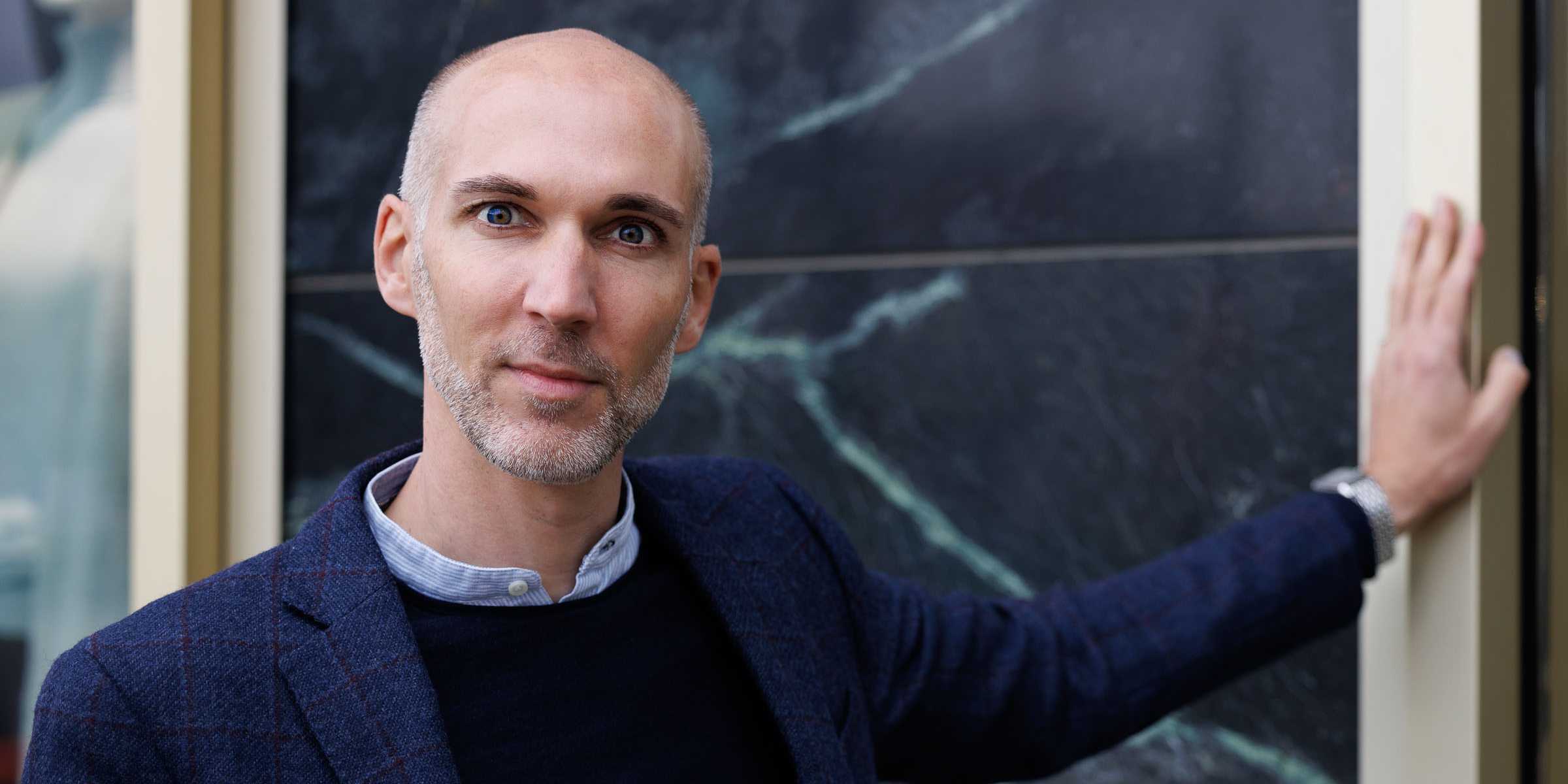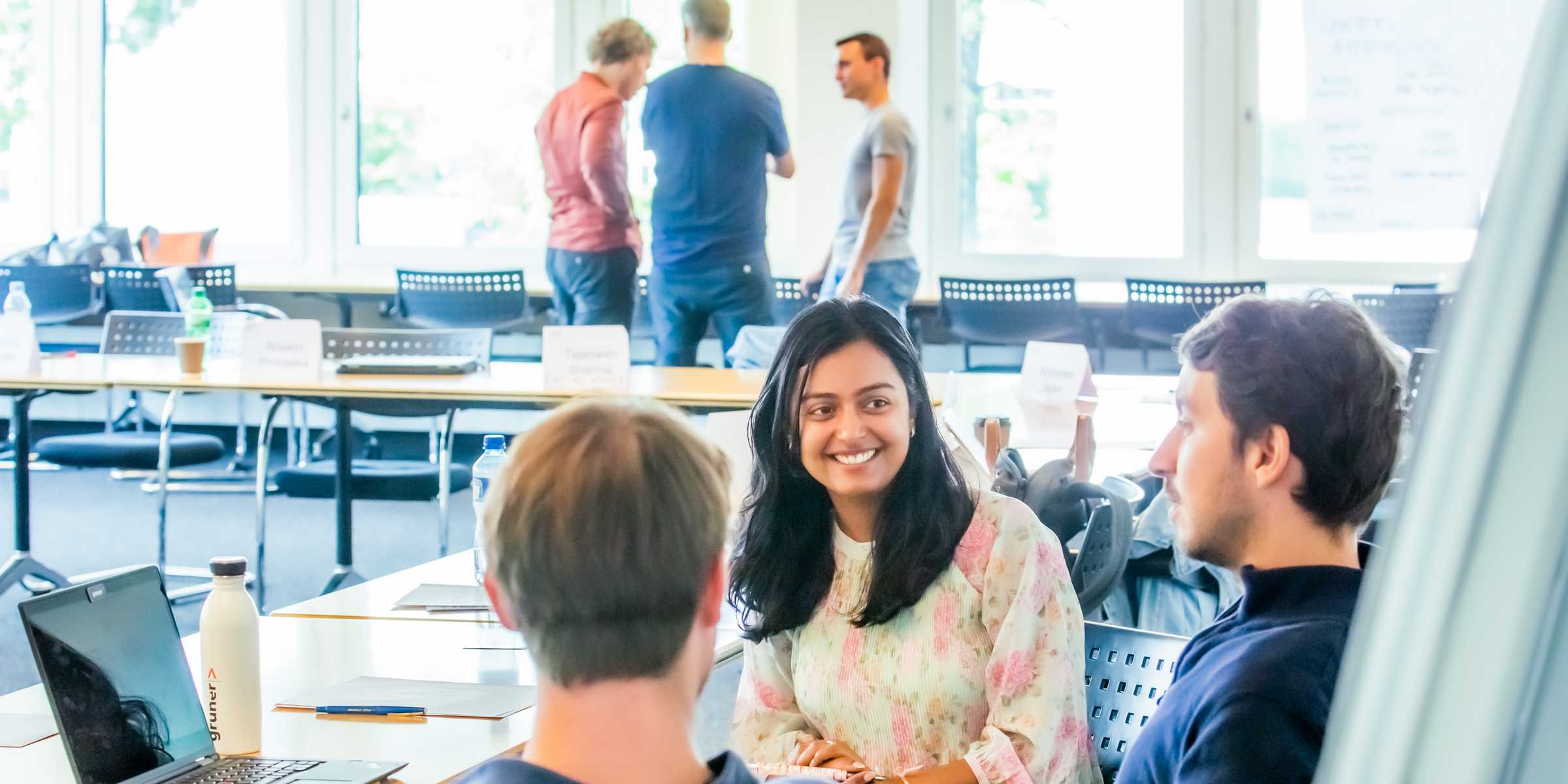
Clear-minded leadership
The MAS MTEC programme’s redesigned leadership track spans the entire student journey. Developed by Pascal Romann, the seminars blend practice and self-reflection to prepare adept, compassionate, and versatile leaders.
Leaders have always been on a quest to master complexity. Today, however, they face unprecedented exposure to an ever-widening range of challenges. They must foster innovation while leading diverse teams, often spread across locations. They must stay on top of AI adoption and accommodate shifted expectations of in-demand talent. They must be coaches and mentors, all while keeping their eyes on the prize.
“Contemporary leadership demands fast adaptation and deep interpersonal skills,” says Pascal Romann. “Leaders today must juggle multiple roles, balance innovation with efficiency, and navigate remote or hybrid work models – all while ensuring their teams feel seen, supported, and engaged.” Romann is a leadership coach and lecturer in the MAS MTEC programme and spearheaded a redesign of its leadership education. Once a stand-alone module, the new leadership track now spans the whole course of study, creating a more sustained learning experience reflecting the tools of modern leadership.
Pascal Romann: Expert in Leadership and Organisational Development
Pascal Romann is a senior consultant in organisational development at SBB and a lecturer for the MAS MTEC and CAS ELTV programmes at ETH Zurich. With academic backgrounds in French and English Literature, Business Administration, and International Management, he has built a career focusing on leadership, communication, and change management. Romann’s professional experience includes cultural transformation projects, team development, and coaching leaders in the manufacturing and energy sectors. He emphasises practical self-reflection and values-based leadership in his courses to foster long-lasting change.
Not what it used to be
“Leadership is no longer about managing weaknesses or fixing problems. It’s about enabling people to use their best qualities to benefit the entire organisation,” says Romann. “You don't just lead. You want to use the resources that people have.”
As organisations evolve, traditional leadership approaches give way to new models. “There’s a clear trend toward participative leadership, where decision-making is shared, and collaboration is prioritised over hierarchy,” Romann explains. “This does not make leadership easier. Collaboration is hard but essential to foster innovation, for example. Leaders are not expected to initiate all new business cases themselves. Instead, they must create the space for exploration and creativity for their teams to be innovative. Younger people also expect leaders to act purposefully and connect their actions to something larger than immediate outcomes.”
“A good leader shows themselves as a human being, revealing not only their strengths but also their weaknesses. This openness fosters trust and strengthens human bonds within the team.”Pascal Romann
Romann also emphasises the growing importance of vulnerability and transparency. “A good leader shows themselves as a human being, revealing not only their strengths but also their weaknesses,” he explains. “This openness fosters trust and strengthens human bonds within the team.” He believes that this shift reflects more profound changes in professional culture, where personal relationships and the quality of the work environment are increasingly valued over external prestige. “Working for a fancy company is nice but doesn’t keep people there. It’s the personal connections and atmosphere that make the difference.”
“Leadership failures often stem from a lack of clarity within teams or delayed intervention in team dynamics. Our goal with the MAS MTEC is to equip students with tools to address these challenges early. As a leader, you must create clarity and enable others to thrive in complexity. It is as much about self-awareness and reflection as it is about decision-making and goal setting.”
Four pillars
The revised leadership track in the MAS MTEC programme unfolds over four stages, providing continuity throughout the two-year degree. Students begin with foundational concepts and advance to applications in real-world scenarios in later course modules.
The first module is on communication, starting with active listening and emotional validation, skills that underpin effective leadership. “Active listening isn’t just hearing what someone says,” Romann explains. It’s about creating a space where people feel genuinely understood. That’s the foundation of trust, and trust is essential for any leader.”
The second part deals with the challenges of leading teams while accounting for different personality traits. Students explore novel management frameworks, such as participative leadership, emphasising collaboration and shared decision-making, and how to positively influence team dynamics towards sustainable high performance.

The third module focuses on self-leadership techniques, teaching students to manage their energy and emotions to maintain resilience under pressure. “You cannot lead others effectively if you don’t know how to lead yourself,” Romann says. “Self-reflection, for example, helps you understand your strengths, limitations, and triggers, enabling you to respond thoughtfully rather than impulsively.”
In the last module, students integrate the tools from the previous sessions and connect them to leadership challenges. They will learn instruments to balance competing demands, such as fostering innovation while maintaining operational efficiency.
“Leadership is about navigating complexity, not reducing it.”Pascal Romann
“Leadership is about navigating complexity, not reducing it,” Romann says. “Simplifying complex systems often backfires. Instead, I teach students to embrace complexity and find actionable entry points for change.” Simulated real-world scenarios allow participants to find these entry points and practice team leadership methods in a controlled environment.
The mindset shift: extra mile and secret sauce
While many programmes focus on building a leadership toolbox, the MAS MTEC approach goes deeper. Throughout his courses, Romann pursues an ambitious goal: to catalyse a shift in mindset among participants: “Reconsidering your values and understanding how they influence your behaviour is key. When you start to see the deeper sense of the tools and recognise how your current behaviour might create frustration or hinder your goals, real change happens. Once you become aware of something that doesn’t align with your values, you can’t unsee it. That awareness drives a long-lasting change.”
The courses are designed to foster this mindset shift through immersion and self-reflection. Exercises encourage participants to revisit past misunderstandings, analyse them, and identify actionable lessons. One method, inspired by Theory U, invites participants to reflect deeply on their core motivations and aspirations. “If you gain clarity on what you want to achieve and why, it transforms how you lead,” Romann says. “Leadership becomes an extension of your values and inner drive, rather than a set of tasks you perform.”
This self-exploration is central to Romann’s teaching philosophy. “I don’t just want participants to learn techniques. I want them to revisit their values, reflect on their mindset, and develop a new understanding of themselves and their impact as leaders.”
Students matter
“The MAS MTEC attracts exceptionally motivated individuals eager to learn. That energy makes teaching here incredibly rewarding,” Romann says. “They are united in their ambition to step up, yet diverse in cultural and professional background. That’s the perfect combination because the students are forced and motivated to work with people they would not encounter in their jobs. That pushes them to become adaptable as leaders.”
Looking ahead, Romann envisions a balance between a more human and a more deliberate goal setting: “The key competence of a future leader is what I call healthy output orientation. On the one hand, trust, transparency and psychological safety will become core competencies of effective leadership. At the same time, future leaders must rethink what they want to achieve beyond transactional aspects of customer relationships and abstract key performance indicators.”
“Leadership isn’t a static skill – it’s a journey,” Romann says. “By equipping students with clarity, confidence, and purpose, the MAS MTEC programme ensures its graduates are prepared to lead in a world that demands both adaptability and vision.”